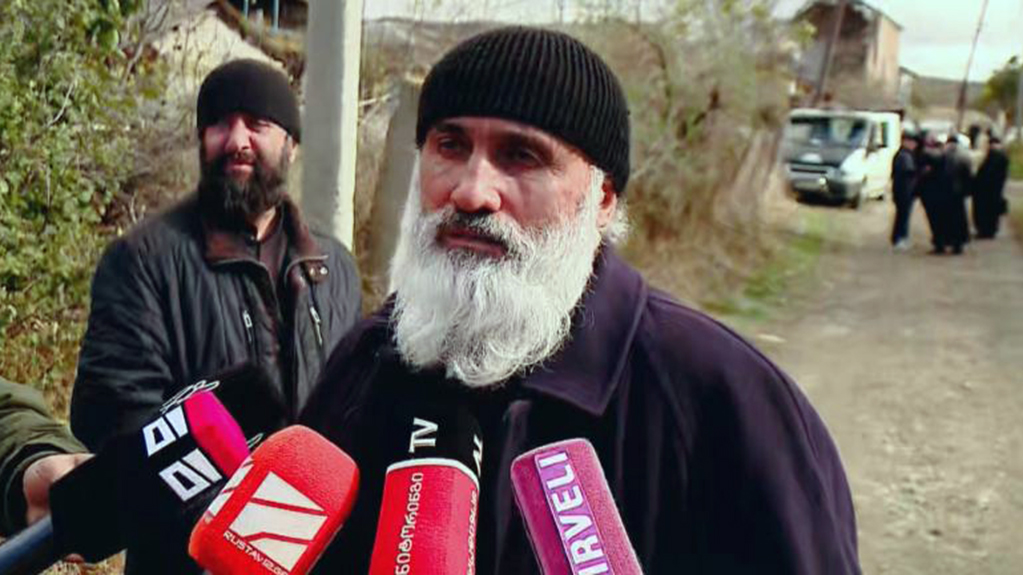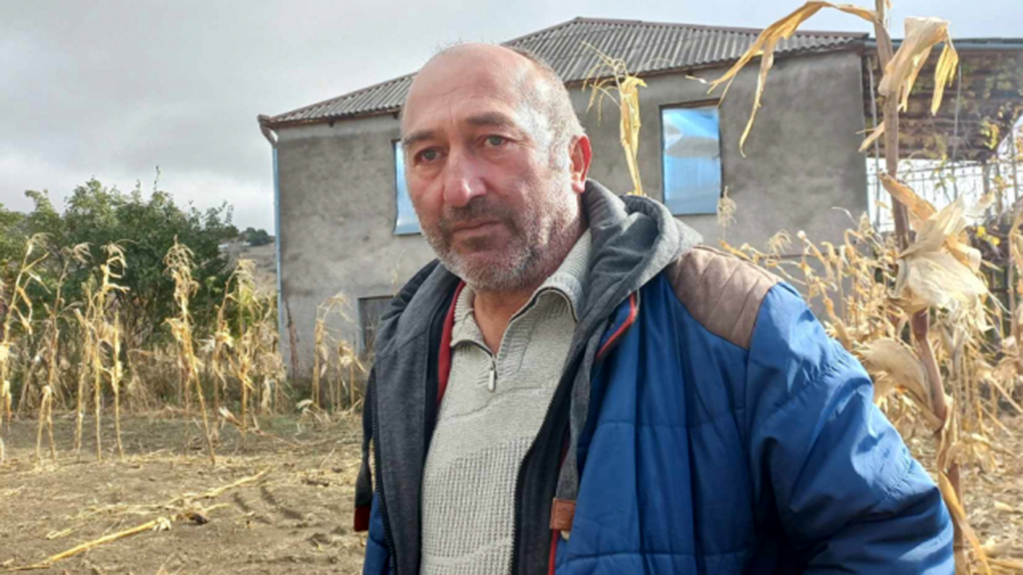‘‘Even if they managed to capture him alive, they would still torture him to death. He fought in the 2008 Russo-Georgian War. He didn’t obey them and they killed him intentionally. There were apparently many Russians, one or two would not be able to overpower him. He was shotin the back multiple times,’’ according to the locals in Kirbali, Russian soldiers did not allow anyone near wounded Tamaz Ginturi, which is why ended up dying on the spot.
News
According to another local, after wounding him, the Russian soldiers threw Tamaz Ginturi into his own car and did not allow anyone to approach it.
‘‘I was running and they caught me. He might have still been alive and we could have been able to save him, but they didn’t let me see him. They told my son to call 112 with Tamaz’s phone and tell them that a man had been wounded and to take him away. My son was taken to Tskhinvali. He is not injured as far as we know,’’ the father of kidnapped Levan Dotiashvili told journalists.
The law enforcers were not letting the media representatives into Kirbali for the whole night and allowed them to enter the village only this morning.
‘‘No livestock, no shrine, no church, what kind of life is this? We are afraid to say a word because someone can just show up and shoot us dead,’’ says a woman from Kirbali.
Tamaz Ginturi was killed by Russian soldiers in the village of Kirbali on November 6. 33-year-old Levan Dotiashvili of the same village, who was with him at the time, was kidnapped. Dotiashvili is kept in the Tskhinvali detention center.
Kirbali residents were at Lomisi Church for lighting candles when the crime happened. Since August 2023, the Russian military no longer allows the residents of Kirbali to visit the Lomisi church. As a result of the so-dubbed creeping occupation, the church got swallowed into the occupied territory. The occupying forces nailed the door of the church shut with a tin plate.
The priests who came to express condolences to Tamaz Ginturi's family told the media that this loss should not become the basis for deepening the conflict between the village, Ossetians, and Russians, but each such victim should instead bring the conflicting parties closer together.
‘‘We prefer the Ossetians, Russians, people of opposing sides, to any temple or church, be it here or in the occupied territory. We prefer the people, the Russians, the Ossetians, the warm and loving relationship, to the Lomisi temple, or any churches and buildings. We are a Christian nation and what enmity destroyed, the love will build back,’’ said one of the priests.
The central government of Georgia demanded yesterday the representatives of the occupation forces to hand over the kidnapped Levan Dotiashvili and to punish those responsible for the murder of Tamaz Ginturi.
Kirbali is considered the most dangerous of the villages bordering the occupation line in Gori municipality. There is almost no family left in the village, whose family member has not been detained and transferred to the Tskhinvali detention center by the Russian military. Russian soldiers detain local residents as they herd their cattle, go to the forest to fetch firewood, or pray in the church.

When asked whether any Georgian police forces were patrolling the area around Kirbali during the murder and where were the law enforcement officers when the shooting took place, Irakli Kirtadze, the representative of the State Security Service of Georgia replied: ‘‘Police forces were patrolling the area, but as the occupation regime told us, this happened near the church. Unfortunately, the church falls within the occupied territory.’’
According to the head of the Shida Kartli Police Department, Valery Telia, ‘‘as many law enforcement officers were mobilized on the spot as needed. They are stationed at the base and do not cross into the occupied territories.’’ He says the policemen have not yet had a chance to inspect Ginturi's car. ‘‘The car is parked in the occupied territory, and as soon as we are given a chance to examine it, we will inform you about it. The investigation is ongoing and we will release additional information when available,’’ said Telia.
According to the so-called security service of the Russian-occupied Tskhinvali, Ginturi and Dotiashvili resisted arrest by the border guards, which threatened the life and health of the border guards. ‘‘The border trespassers used an axe. They later tried to ram the border guard with a car and then leave for Georgia. To prevent these illegal actions and to prevent the illegal crossing of the state border of the Republic of South Ossetia, the border guards fired a warning shot in the air, and after the violators failed to obey the legal requests, they opened fire on the tires of their car. One of the violators was severely wounded and was transferred to the Georgian side for emergency medical care, while the other was arrested.’’
This is not the first case of the Russian military murdering Georgian citizens in the occupied territory.
Former military serviceman, 35-year-old Archil Tatunashvili was arrested on February 22, 2018, by de facto authorities in occupied Akhalgori. On February 23, it was reported that he died in Tskhinvali. According to the representatives of the de facto authorities, after the arrest, Tatunashvili resisted the law enforcement officers during his transfer to the temporary detention center, which necessitated the use of force, as a result of which the detainee tumbled down the stairs of the detention center. According to Tskhinvali's version, Tatunashvili died of heart failure two hours after being taken to the hospital. His body was handed over to the Georgian side after 26 days.
30-year-old Giga Otkhozoria was killed on May 19, 2016, near the occupation line of Abkhazia, at the Khurcha-Nabakevi checkpoint. He had an argument with the representatives of the armed formation of the de facto government of Abkhazia stationed at the border checkpoint - the so-called border police. In order to avoid the conflict, Giga Otkhozoria left the territory of the checkpoint and headed towards the controlled territory of Georgia. He was chased down by the so-called Abkhaz border guards, including armed border guard Rashid Kanji-Ogli, who shot him several times in the Georgian-controlled territory.















